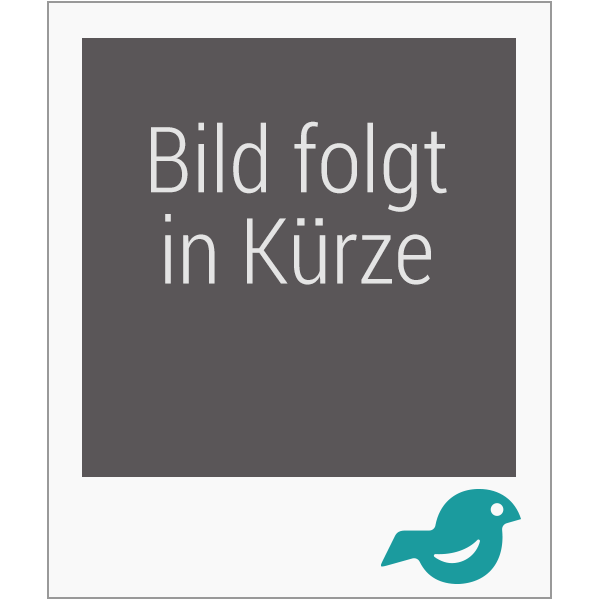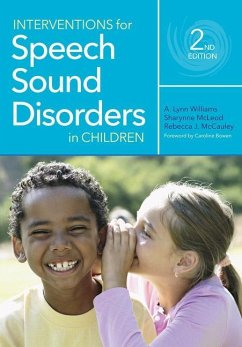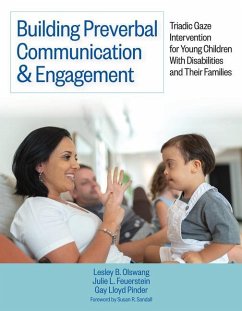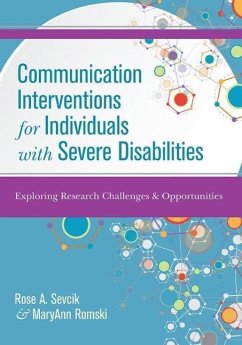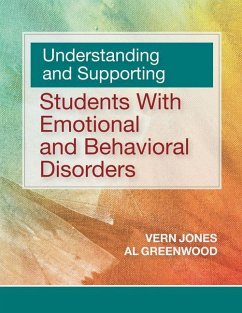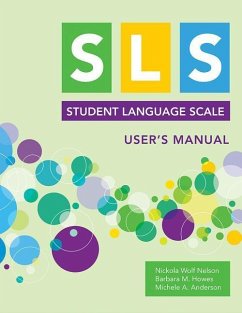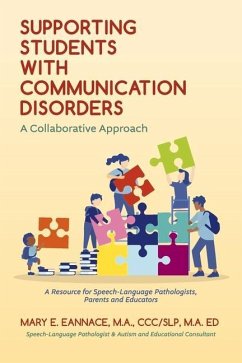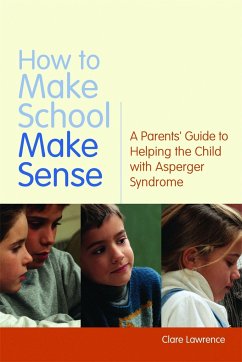Lesley B. Olswang, Ph.D.'s, 40-year tenure at the University of Washington included a professorial appointment in the Department of Speech and Hearing Science and a research affiliate appointment at the Center on Human Development and Disability. She received her academic degrees at Northwestern University, the University of Illinois, and the University of Washington. Dr. Olswang's honors include the University of Washington Distinguished Teaching Award and the Marsha Landolt Distinguished Graduate Mentor Award, a Fulbright Scholar's Award to study in the United Kingdom, Fellow and Honors of the American Speech-Language-Hearing Association, and Editors Awards from Language, Speech and Hearing Services in Schools and the American Journal of Speech Language Pathology. Dr. Olswang has had extensive clinical and research experience with children with language disorders. Her first clinical experiences involved developing a screening program for preschoolers in Evanston, Illinois, as the United States Education for All Act was initially being implemented. Her clinical research career has focused on two primary groups of children with communication challenges: school-aged children and children below the age of three. Her school-age research has examined the social communication of children diagnosed with Fetal Alcohol Syndrome as they participate in classroom activities. Her research with children below the age of three has focused on two specific populations: toddlers diagnosed with specific language impairment and infants diagnosed with moderate to severe disabilities. She has been investigating the efficacy of treatment with these children and their families, particularly attempting to determine readiness factors for predicting benefits from different intervention options. Her primary research efforts in the last several years has been investigating the efficacy and implementation of Triadic Gaze Intervention, which was designed to assess and teach gaze shift as an intentional signal of communication to very young children with disabilities and complex communication needs. This research has been dedicated to improving the engagement and communication between children and their families as they encounter the struggles associated with disabilities. Dr. Olswang's research has been supported by grants from the University of Washington, The Arc of Washington State, the U.S. Department of Education, the National Institutes of Health, and the Centers for Disease Control. Julie Feuerstein, Ph.D., CCC-SLP, is an Assistant Professor at the School of Communication Sciences and Disorders at the University of Central Florida. She obtained her master's degree in Speech-Language Pathology at Boston University and her doctorate in Communication Sciences and Disorders at the University of Washington. She completed post-doctoral training in the Department of Psychiatry and Behavioral Sciences at the Johns Hopkins School of Medicine, with an appointment to Kennedy Krieger Institute's Center for Autism and Related Disorders. Dr. Feuerstein is certified a speech-language pathologist who has practiced in a variety of pediatric practice settings, including early intervention, outpatient clinics, and inpatient rehabilitation. She is a member of the American Speech-Language Hearing Association, Neuro-developmental Treatment Association (NDTA), International Society for Augmentative and Alternative Communication, and Society for Implementation Research Collaboration. Dr. Feuerstein's research interests center around evaluating the effectiveness of early communication interventions for minimally verbal children with neurodevelopmental disorders and examining mechanisms for moving empirically supported interventions into clinical practice. Her pre- and post-doctoral research has been supported by research awards from the American Speech-Language Hearing Foundation, the University of Washington and Kennedy Krieger Institute's Center for Autism Related Disorders and by institutional training grants from the National Institutes of Health. Natalie M. Douglas, M.A., Doctoral Candidate and Speech-Language Pathologist, Department of Communication Sciences and Disorders, University of South Florida, 4202 East Fowler Avenue, PCD1017, Tampa, Florida 33620 Ms. Douglas is a doctoral candidate and speech-language pathologist working with adults in acute care and skilled nursing facilities. She studies the implementation of best practices for adults with cognitive-communicative disorders.
